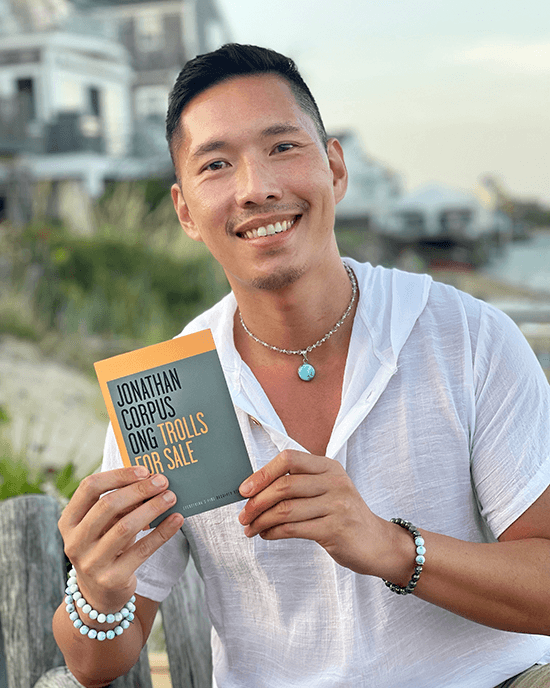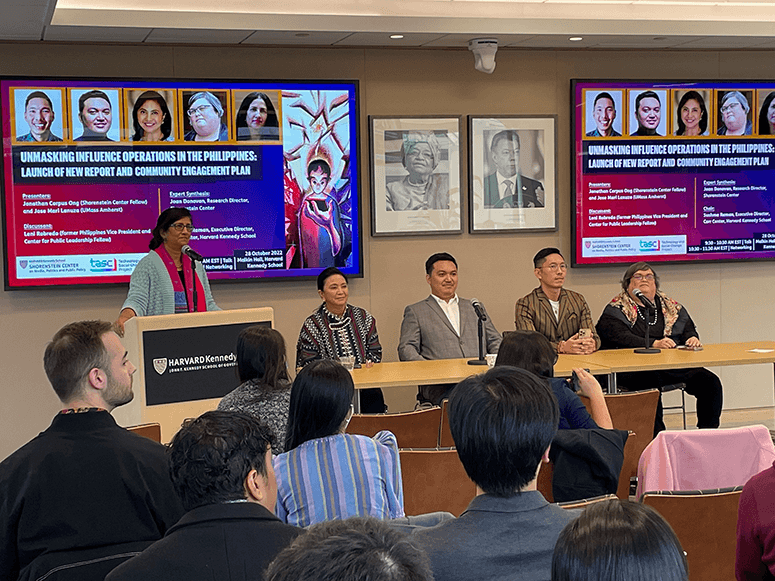The truth about upholding “truth” in the disinformation age with Jonathan Corpus Ong
For over 6 years, Jonathan Corpus Ong has been a prominent voice in our fight against disinformation. An associate professor at the University of Massachusetts and a Harvard fellow, Ong’s work focuses on shaping the narratives around disinformation. His recent research, “The Evolution of Disinformation in Three Electoral Cycles,” mapped out disinformation innovations in the past three elections and its consequences on civil society.
Ong’s journey began in advertising and media. To him, it was necessary to be immersed in the culture that drives communication, a subject he was planning on teaching then. Recognizing how crucial community engagement is, Ong empowers Filipinos to be moral participants in our digital spaces—from translating his academic research to hosting disinformation-whistleblower podcasts and teaching how to engage in reasoned discourse.
The Philippine STAR spoke with Ong to delve into the vulnerability of Filipinos to disinformation and what we can do to uphold the truth.
Breaking myths on the bobotante
During election season, several voters argue for the disenfranchisement of so-called bobotantes, who are seen as most vulnerable to fake news due to their lack of access to education.
Ong offers a different perspective. “We tend to jump to the conclusion na ang masa ang unang naloloko sa mga nababasa nila online. (But) there’s little evidence that disinformation is class-based. Disinformation is always hyper-targeted. Certain kinds of issues or narratives will always be specific to different communities. Topics on security, for example, would always be paramount to the middle class. Therefore, (different) classes are vulnerable to disinformation, just as the masses might be vulnerable to certain political narratives.”

Further, Ong shares his fears about the clamor for anti-disinformation laws. “What we really need moving forward is a balance between long-term and quick-fix solutions. As a researcher, I think thoughtful, good regulation is important, but that's also difficult and easily co-opted by bad actors in the government. We only need to look at our neighbors across Southeast Asia and broader Asia that show how these laws are used to suppress critics and dissidents of the administration.”
“We tend to jump to the conclusion na ang masa ang unang naloloko sa mga nababasa nila online. (But) there’s little evidence that disinformation is class-based. Disinformation is always hyper-targeted.”
He reiterates that while we must be cautious of quick-fix solutions, fact-checking is still the frontline of defense against disinformation. “It needs to be paired with more sociological solutions to really understand why people believe in the things they do. It's not just a neat binary of true versus false. Influencer operators now come out with a mix of truth and blatant lies, and try various ways of appealing to different types of communities and their belief system.”
The crippling traps of echo chambers
As disinformation evolved and became more pervasive over the years, Ong talks about its long-term consequences and why people choose to believe their own versions of “truth.” “The information ecosystem has split up. May kanya-kanyang influencer, sariling news channel, health expert, favorite academic, even. Merong pang-mataas at pang-masa ang bawat panig.”
Termed by Ong and his co-researchers as an information-media-fantasy-complex, this has turned into a self-sustaining political universe in itself, utilized by both the current and previous administrations. Ong points out that in the past, people relied on legacy media to learn about politics. But disinformation has undermined the credibility of legacy media and academic experts. Now, individuals feel more empowered to choose alternative influencers who align with their political reality.

Defending the truth
While there’s been a rise in counter-disinformation interventions, Ong emphasizes that quantity does not equate to quality. “There’s no shortage of digital literacy courses, but there’s usually a lack of criticality. Interventions need to be tailored to local contexts.”
In order to engage audiences who hold different political worldviews, he stresses a common thread in our discussion—to understand that people come from nuanced backgrounds. “People are complicated. Human beings are desperate for approval, and that's why we get into doing very bad things sometimes. To tell that story is important because the solutions that we are being presented can be oversimplified. It’s important to capture people's complexity.”
“There’s no shortage of digital literacy courses, but there’s usually a lack of criticality. Interventions need to be tailored to local contexts.”
For academics and legacy media, Ong notes, “We shouldn’t take for granted that our students and our readers trust us. It's a process of always keeping and maintaining their trust.” His research emphasizes, “Instead of relying on our credentials to assert our claims, we can do better by communicating our values, methods, and work processes.”
There’s a need for us to understand the disinformation economy, including how political trolls are recruited, how they are paid, and their moral justifications for their work. “We need to remember na hindi sila brainwashed. Hindi sila tanga. There are various profit-oriented and commercial motivations at play. This is why ethics is so important," he says.
"To open up a dialogue or a conversation, the objective should not be conversion therapy. Rather, we should listen so we can understand and have the right language for addressing these issues.”
Ong’s team is looking for organizations and individuals who can pilot interventions on disinformation with their funding and guidance. Submit your pitches to communityengagementplan2022@gmail.com.
***
Jonathan Corpus Ong is an associate professor of global digital media at the University of Massachusetts at Amherst and a research fellow at the Shorenstein Center of Harvard Kennedy School. He is the author of pioneering ethnographic research in disinformation studies, focused on the social identities, work arrangements, and moral justifications of “paid trolls.” He is a 2022 awardee of the Andrew Carnegie Fellowship.


